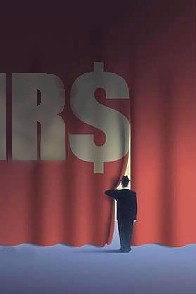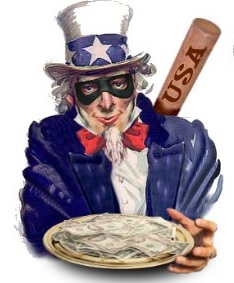Commonlaw Copyright © 2010 - 2015 My Private Audio - All Rights Reserved
IRS Bloopers
If you come to realize that the whole of government is a lie, do you continue participating in it?
If you do the research and discover that the income tax is voluntary, do you continue to volunteer?
Constitutional Law by Carl Miller pdf
Federalists Papers pdf
Citizens Rule Book pdf
The Bankruptcy of The United States pdf
Taxation pdf
Pastor Garth's Tax Letter
Pastor Garth's Lien Letter
Constitution Man
IRS Notice of Lien Information
From One of Our Members
Item 1 A Comprehensive Analysis
Item 2 Confidentialty and Disclosure
Item 3 Russel Shirts Letter
Item 4 Recordation of NOFTL
Bill Spark in response to an article posted online regarding liens
WHERE DO YOU THINK THESE GUYS GOT THE IDEA? Answer: No one files more fraudulent liens than the IRS. Check out your county recorder for "Notice of Federal Tax Lien" and its an enormous number of them filed by an "Automatic Collection System" each month. Just realize there are 3K counties in the US. These liens are not recorded as a regular lien because a regular lien needs a shred of due process called a judge's ruling/signature. To support big brother in its expediency of "justice" each state has allowed a loophole in state law that allows these to be "filed" instead of "recorded". This is only permitted the IRS and specifically on these type of "toilet paper" liens. The law on the authority for "signature" on these permits "printing" only so thus the IRS uses 'printed cursive" to give the appearance of legitimacy that they are signed. No one with the REAL ID of the person's name signs them--only a "pocket credential" "pseudonym" is used.
This page was last updated: October 20, 2020
Loma and Rae The Notice of Lien
Paycheck-Piracy
Your donations of any amount are appreciated. They help keep me going and make this web site possible.
Thank you for your support.
Social Security Administration
Seizure Cites
The method for accomplishing a levy on a bank account is the issuing of warrants of distraint (court order), the making of the bank a party, and the serving with notice of levy, copy of the warrants of distraint, and notice of lien.
United States v. O’Dell, 160 F.2d 304
Without a valid notice and demand, there can be no tax lien, without a tax lien, the IRS cannot levy against the taxpayer's property.
Myrick v. United States, [62-1 USTC
9112], 296 F 2d 312 (5th Cir. 1961)
Any person who mistakenly surrenders to the United States property or rights to property not properly subject to levy is not relieved from liability to a third party who owns the property.
C.F.R. 26, Section 301.6332-1(c)
Section 3692 does not prescribe any procedure for accomplishing a levy upon a bank account. The method followed in the cases is that of issuing warrants of distraint (court order), making the bank a party, and serving with the notice of levy copy of the warrants of distraint and notice of lien.
Commonwealth Bank v. United States,
115 F.2d 327:
United States v. Bank of United States, 5
F.Supp. 942, 944
IT'S ALL A FRAUD!
IT'S ALL A FRAUD!
What is Income?
THE STRAIGHT DOPE | Why is American currency signed by the Treasurer of the United States and the Secretary of the Treasury? Click here
"The very purpose of a Bill of Rights was to withdraw certain subjects from the vicissitudes of political controversy, to place them beyond the reach of majorities and officials and to establish them as legal principles to be applied by the courts. One's right to life, liberty and property, to free speech, a free press, freedom of worship and assembly, and other fundamental rights may not be submitted to vote; they depend on the outcome of no elections." West Virginia State Board of Education v. Barnette - 319 U.S. 623
“No right is held more sacred, or is more carefully guarded by the common law, than the right of every individual to the possession and control of his own person, free from all restraint or interference of others, unless by clear and unquestionable authority of law. As well said by Judge Cooley: 'The right to one's person may be said to be a right of complete immunity; to be let alone.' Cooley, Torts, 29.” Union Pac Ry Co v. Botsford, 141 U.S. 250, 11 S.Ct. 1000, 35 L.Ed. 734 (1891)
Void Where Prohibited By Law
Did you sign that Substitute For Return?
Angela Recommends listening to this Audio

